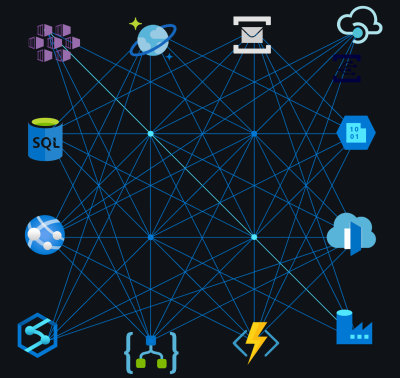Introduction
As a .NET developer, you have probably considered using Azure Functions to create serverless applications. However, choosing between running Azure Functions on App Service or Kubernetes can be confusing. In this blog post are the differences explorer between the two options to help you make an informed decision.
Azure Functions on App Service
Azure App Service is a fully managed platform that allows you to build, deploy, and scale web apps, mobile apps, and APIs. Azure Functions can be deployed to App Service as a Function App, which provides a serverless hosting environment for your code. With App Service, you don’t have to worry about managing infrastructure or scaling, as Microsoft takes care of it for you.
One advantage of using App Service for hosting Azure Functions is the ease of deployment. You can deploy your code directly from Visual Studio or through Azure DevOps, and App Service takes care of the rest. Additionally, App Service provides a variety of scaling options, allowing you to scale up or down based on demand.
However, one limitation of using App Service is that you are limited to the regions in which it is available. If you need to deploy your Azure Functions to a specific geographic location, App Service may not be the best option.
Azure Functions on Kubernetes
Kubernetes is an open-source container orchestration platform that allows you to automate deployment, scaling, and management of containerized applications. Azure Functions can also be hosted on Kubernetes, allowing you to take advantage of the benefits of containerization and the flexibility of Kubernetes.
One advantage of using Kubernetes for hosting Azure Functions is the ability to deploy your code to any geographic location. This is particularly useful if you need to comply with data residency regulations or have low-latency requirements for your application.
Additionally, Kubernetes provides a high level of flexibility and control over your infrastructure. You can choose the size and type of nodes to run your containers, configure networking and storage options, and use Kubernetes tools to monitor and manage your application.
However, deploying Azure Functions to Kubernetes requires more setup and management than App Service. You will need to configure your Kubernetes cluster and deploy your code as a container image. Additionally, you will need to manage scaling and infrastructure resources yourself.
Custom Location Service
The “Custom location” service Azure location is a relatively new offering from Microsoft that allows you to deploy Azure services to locations outside of Azure regions. With Custom location, you can deploy Azure services such as Azure Functions to any location where you have a Kubernetes cluster running.
Deploying Azure Functions to a Custom location involves creating a Kubernetes manifest file that specifies the location and configuration of your Azure Function. You can then use the Azure CLI or Azure Portal to deploy your function to the Custom location.
One advantage of using Custom location is the ability to deploy Azure Functions to locations where Azure is not currently available. Additionally, Custom location allows you to take advantage of the benefits of Kubernetes, such as flexibility and control over infrastructure, while still using Azure services.

Conclusion
In conclusion, both App Service and Kubernetes provide viable options for hosting Azure Functions. App Service provides a fully managed hosting environment with easy deployment and scaling, while Kubernetes provides flexibility and control over infrastructure and the ability to deploy to any geographic location. Additionally, Custom location allows you to deploy Azure Functions to locations outside of Azure regions, leveraging the benefits of Kubernetes while still using Azure services. Ultimately, the choice between App Service and Kubernetes (or Custom location) will depend on your specific requirements and preferences.
